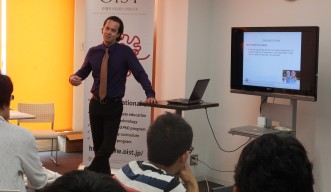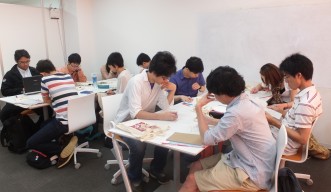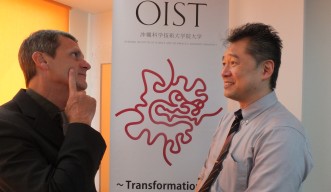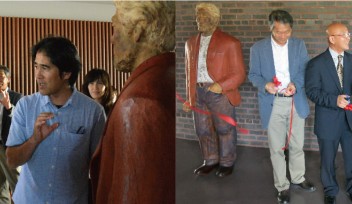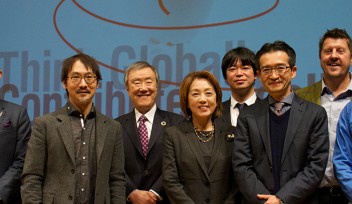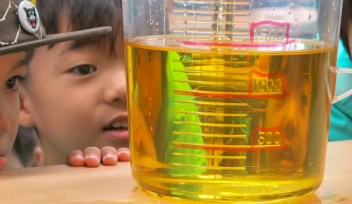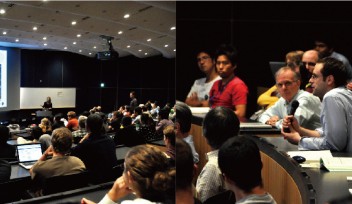OIST Meets Young Hopefuls in Tokyo and Sapporo

OIST Café, a seminar aimed at science students, was inaugurated in April in Tokyo. This month it was held again in Tokyo, and also in Sapporo, on June 16 and 19. These events were intended for science majors interested in doing research in an international environment with communication in English. OIST Café allowed participants to consider potential science careers and receive English learning tips.
Following the first talk in April, entitled “What is Science Communication in English?” Kevin Hunt, OIST’s full-time English teacher and the instructor for the second Tokyo seminar, chose a different theme, “What is a Statement of Purpose?”. This one was attended by twelve people, including graduates and undergraduates, who learned how to write a good Statement of Purpose, a skill required when applying to master and Ph.D. programs in many countries. A Statement of Purpose is an essay, letter, or other written statement written by a prospective student applying to a college, university, or graduate school highlighting their individual strengths and suitability to the program of study. After the seminar, Mr. Hunt was happy with the results, saying, “Their attitudes were all positive and they engaged actively in writing tasks throughout the session.” The first OIST Café in Sapporo focused on science communication. Through discussions, and by summarizing key points of a news story about Professor Shintake’s research they had watched, participants sought the best way to convey scientific content to different audiences.
After the lectures in both cities, Dr. Mizuki Shimanuki, Manager of Biology Resources Section at OIST, talked about his own experience over the course of his career. Some of the students said that his experience, starting out as a researcher and becoming head of a research support section, would help them think about their own career options other than those in research after finishing their Ph.Ds.
Harry Wilson, Manager of the Academic Services Section, introduced OIST’s international and interdisciplinary doctoral program. Then participants, instructors, and staff all got together to exchange opinions about everything from career development to research life at OIST. During the discussions, there were many questions regarding professions after completing the Ph.D., manifesting the participants’ intense interest in career planning. Some students voiced concerns about English fluency, but OIST’s support system for students and administrative staff, who are not native English speakers, surprised them with its opportunities for improvement of language skills, such as thesis writing, presentations, and discussions.
OIST Café will continue to be held every two months in major cities throughout Japan, offering different topics each time. The event will promote OIST while encouraging science students who are preparing to perform on the global stage.










